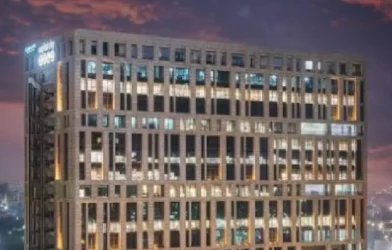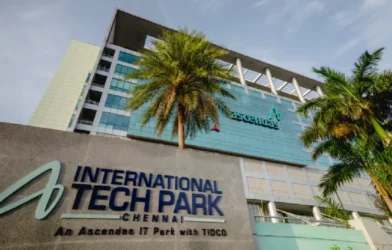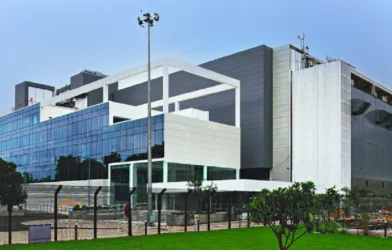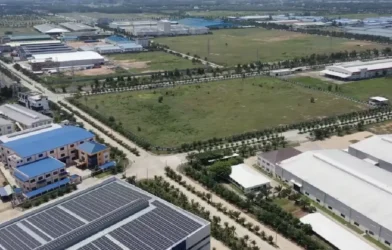Subtotal ₹0.00
Though this year’s budget was largely positive for the real estate sector, with many real estate-friendly provisions, despite several hits, there were also many misses. Vinod Behl
HITS
1. Infrastructure Boost
The budget has provided a massive capital infusion of Rs 11.11 lakh crore to the infrastructure sector . In addition , the budget has made a Rs 1.5 lakh crore provision for long-term interest free loans to support infra investments by the states. This will indirectly boost the real estate sector.
2. Disposable Income Boost
With a major thrust to employment and skilling and readjustment in personal income tax slabs along with Rs 25000 hike in standard deduction will push disposable income . This will help facilitate homeownership by the middle class.
3. Rental Reforms Push
The provision of rental housing for industrial workers in PPP mode, together with reduction in TDS from 5 percent to 2 percent for monthly rents paid by individuals or HUF in excess of Rs 50000 , will benefit property owners, especially senior citizens.
4. LTCG Simplification
The budget has simplified Long Term Capital Gains Tax (LTCG Tax) by doing away with indexation benefits and instead reducing LTCG tax from 20 percent to 12.5 percent. This substantial tax reduction will neutralise any loss due to withdrawal of indexation benefit.
5. Boost to Investment
The budgetary provision to liberalise FDI norms along with Vivad se Vishwas 2.0 initiative will fastrack settlement of pending disputes/appeals, thereby promoting ease of doing business and enhancing the confidence of investors. Abolition of Angel Tax on funds raised by the Indian companies, viability funding and reduction in tax rates for foreign companies are investment boosting measures.
6. Fillip to Commercial Real estate
The push to transit-oriented development in 14 large cities and brownfield redevelopment in 100 large cities will help boost mixed use developments including commercial real estate. The abolition of angel tax and cut in corporate tax will boost GCCs, in turn pushing up commercial realty.
7. Mega Push to Housing
The budget has provided a Rs 10 lakh crore investment push under PMAY 2.0 to construct additional 3 crore homes for the middle class. The reintroduction of credit-linked subsidy will give further push to affordable housing.
8. Stamp Duty Rationalization
In the backdrop of rising property prices and high interest rates, the budget proposes to bring down cost of transactions by encouraging states to cut down stamp duty to push home ownership.
9. Connectivity Boost to Tier 2-3 Cities
The rise in railway capex to Rs 2.65 trillion together with allocation of Rs 1.5 trillion as interest free loan to states will boost connectivity , especially benefitting the growth of real estate in Tier 2-3 cities.
10. Smart Cities Mission Extension
Though done separately, the extension of Smarts Cities Mission deadline beyond June 30 2024 to March 31 2025 along with the release of pending funds to over 2 dozen smart cities will boost urban development.
MISSES
1. Personal Income Tax Incentives
Considering the significant rise in inflation, the minor changes made in the income tax slabs along with a Rs 25000 hike in standard reduction is much below the expectations of middle-class taxpayers. This may not raise disposable income to desired levels for promoting home ownership.
2. LTCG Changes Hit the Investment Sentiment
Despite the substantial reduction in LTCG tax from 20 percent to 12.5 percent, the withdrawal of indexation benefit to property investors has hit their sentiment . Many real estate experts believe that it may impact demand, particularly hitting middle income housing
3. TDS Disincentive
As per the new provisions , buyers of property costing more than Rs 50 lakh have to deduct 1 percent of the price paid as TDS, based on the property value. Tax benefit on the basis of individual share of property can no longer be availed.
4. Lack of Incentive to Affordable Housing Developers
Considering that affordable housing has been facing a dip in demand and supply, the budget failed to address the issue of pushing supply by providing tax incentives to developers of affordable housing . There is no relief with regard to access to cheaper finance or cheaper land.
5. Single Window Clearance Remains Unaddressed
The long-pending demand of the real estate sector for establishing a single window mechanism for approvals and project clearances to cut time and cost escalation has not been addressed.
6. No Industry Status For Real Estate
The easy access to capital has been a bane for the real estate sector. As such it has been demanding industry status inorder to have easy access to cheaper finance. But this demand has not been met.
7. No enlargement of the Scope of Affordable Housing
In the backdrop of high property prices, the real estate sector has been asking for revising price and area criteria for affordable housing in order to bring more prospective home buyers under the ambit of PMAY. But the budget has not done anything in this regard.
8. Need to Enhance Funding For Stressed Projects
In order to ensure speedy completion of a large number of stalled housing projects, the real estate sector has been demanding a hike in the funding allocation for SWAMIH Fund and bringing more private capital but the budget has failed to address it.
9. No Hike in Tax Exemption on Home Loans
In view of declining affordability due to rising inflation, the affordable housing players have been expecting the government to raise the tax exemption limit on both principal amount and interest paid on home loans . But their hopes have been belied.
10. No Parity in REITS LTCG Treatment
The demand to align the holding period for LTCG tax on REITs units with that of equity shares (one year) has not been met. This would have removed constraints for retail investors and boosted REIT attractiveness .














